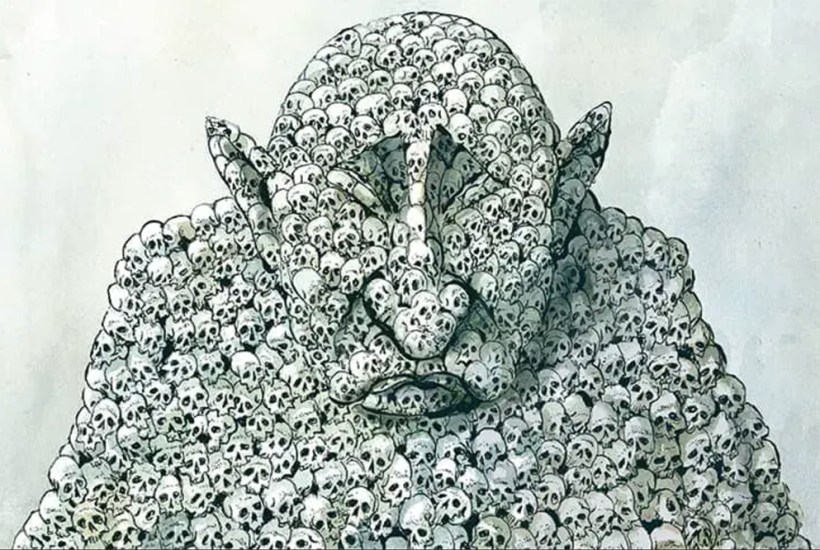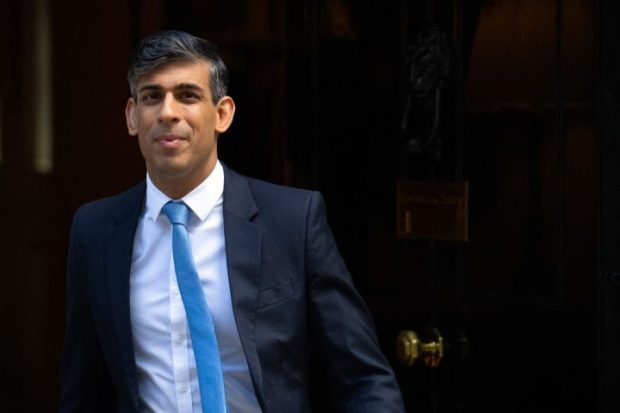Until this week, the prospect of globalfamine had disappeared from the headlines, but earlier in Russia’s waragainst Ukraine, a sinister possibility had begun to take shape.
Ukraine is a breadbasket. Its produce feeds the world. AndRussia, knowing this, hatched a plan. Its soldiers could wreck Ukrainian farmland and kill itsfarmers. Russians would steal and sell all the Ukrainiangrain it could. And the Black Sea –a vital artery through which most of Ukraine’s food exports travelled – wouldbe blockaded by the Russian navy. Food shipments would not be let through. The world would starve, Ukraine’s economy would suffer, and– in Vladimir Putin’s mind – he would be the victor.
Most of the Arab world, the Indian subcontinent, and Africarelies to some degree on imported food. Food from Russia and Ukraine used toconstitute a plurality of the calories consumed in, for example, Egypt andLebanon. Without this food, Africans, Indians and Middle Easterners would facefirst higher prices, then starvation. It was a devilish tactic.
Putin’s regime was quite open on this front. When it becameclear that Russia could not win the war with conventional means, unconventionalones began to take shape. The world had armed Ukraine and kept its economygoing in defiance of Russian threats, but the third world could still be madeto suffer.
Western nations live in perpetual fear of another wave ofmass migration – one akin to the Mediterranean refugee crisis which followedthe height of the Arab civil wars in the last decade. Poverty and hunger causemigration. They cause civil conflict too. Putin gambled that the democraticworld would meet his demands in order to avert this possibility.
Russia’s propagandists and emissaries were clear: theywould compensate for military failure with a ‘hunger campaign’.Margarita Simonyan, the editor-in-chief of the state-run RT network and apersonal confidante of the Russian president, said on national TV in June that: ‘All our hope is pinned on famine’.
The West had options. Russia’s threats were flagrantlyillegal. There was always the possibility of sending the cargo ships of a dozenneutral countries into the Black Sea, loading them up with legal Ukrainiangrain, and defying theRussian navy to do anything about it. But in the end, the wider world blinked. The UN, Russia,Ukraine, and Turkey made a deal.
Russia made a promise: that it would loosen itsgrain blockade and allow Ukrainian produce to leave the blockaded Black Seaports, accompanied by the lifting of sanctions on Russia’s own grainexports. The UN deal was intended to allow millions of tons ofgrain, which were then trapped, unused, in warehouses, to be sold on theworld market.
On 22 July, the Secretary-General of the United Nations,Antonio Guterres, sighed that he was relieved. ‘Today there is a beacon on theBlack Sea,’ Guterres said. ‘A beacon of hope’.
Clause C of the UN-sponsored deal expressly ruled outattacks by either side on port facilities. But then, less than twenty-fourhours later, Russian Kalibr missiles landed in theUkrainian Black Sea port of Odesa. It was clear from the beginning that the Russians couldnever be trusted. The deal was always going to be contested and contentious.
And this week, Russia suspended the deal. TheKremlin has called continuing grain shipments under international agreement ‘dangerous’. The Russian ‘hunger plan’ has returned.Even though many poorer countries have been given time to prepare – with exportcontrols, stockpiling, and some improvements in domestic food production –famine is never far away.
For too long, theworld has been dependent on Russian cooperation and goodwill.Now Russia has withdrawn that cooperation (as was widely, instantaneouslypredicted the moment the deal was signed), we are in a tight spot. But the reaction might have surprised Russia, too.Rather than crawling back to the Kremlin – as an observer of the UN reaction tothe initial crisis might have predicted – defiance is the order of the day.Turkey and Ukraine are doing what some said they should have from the start: in practice, ignoring Russia, sending grain ships out of theBlack Sea anyway, and defying theRussians to attack them.
Turkey’s president, Recep Tayyip Erdogan, has a lotinvested in the grain deal’s success. His country is ‘determined’, he saidtoday, to continue its work to keep the Ukraine grain deal in practice –regardless of Russia’s leaders withdrawing from the arrangement.
And as if as a test of Russian resolve – two ships, the Admiral de Ribas and Mount Baker – left port today in defiance of Russianthreats. It’s a potent repudiation of Russia’s domineering attitude. Ifthis succeeds, it will collapse the vain pretence of Russia’s Black Sea fleet – whichhumiliatingly lost its flagship earlier in the year and was attacked in port byUkrainian drones last week – to control the waters beyond the Turkish Straits.
This defiant tactic should have been tried much earlier. Itwon’t be easy; things could in fact get bumpy. But courage is contagious andbravery works.
Either Russia will be shown a paper tiger or they will beforced to make another deal (temporary and weak though it may be). And in anycase, the poor world will not starve on Vladimir Putin’s account, or serve asso many pawns in his murderous game.
Got something to add? Join the discussion and comment below.
Get 10 issues for just $10
Subscribe to The Spectator Australia today for the next 10 magazine issues, plus full online access, for just $10.




















Comments
Don't miss out
Join the conversation with other Spectator Australia readers. Subscribe to leave a comment.
SUBSCRIBEAlready a subscriber? Log in